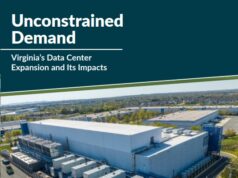From the Alleghany-Blue Ridge Alliance:
Virginia cannot approve proposed natural gas pipelines lacking critical information about impacts on state waters
Appalachian Mountain Advocates * Chesapeake Bay Foundation
Preserve Craig * Southern Environmental Law Center * Wild Virginia
Conservationists concerned about the two highly controversial natural gas pipelines proposed to cut hundreds of miles through Virginia sent a detailed letter to the State Water Control Board today laying out why the projects cannot be approved at this time due to a host of concerns about their impacts on waters of the Commonwealth.
Under Section 401 of the Clean Water Act, the board cannot approve the pipelines without “reasonable assurance” that the pipelines would not violate Virginia’s water quality standards. As it stands, the board simply does not have enough information from the projects’ developers or from the Department of Environmental Quality (DEQ) to make that determination, the letter states.
In particular, the DEQ has excluded from consideration of the state water quality certifications the central problem of how the pipeline developers plan to address erosion and sediment pollution and stormwater management during the construction of the massive projects.
The proposed Mountain Valley and Atlantic Coast pipelines would cross headwater streams, rivers and wetlands about 1,400 times in Virginia. They are considered among the greatest threats to state waters in generations, and have sparked opposition among thousands of Virginians along the routes and beyond.
The 17-page letter was sent to the water board by attorneys with Appalachian Mountain Advocates, Chesapeake Bay Foundation, Preserve Craig, Southern Environmental Law Center, and Wild Virginia. The board, whose seven members are appointed by the governor, is scheduled to meet in early December to consider the state water quality certifications for each of the pipelines.
At those meetings, DEQ staff will present its final recommendations to the board. As the attorneys’ letter states: “DEQ’s recommendations are just that—recommendations. Ultimately, the authority to grant or deny water quality certifications lies with the members of the State Water Control Board. We urge the Board to recognize and exercise this authority to the extent necessary to protect Virginia’s waters and the communities that rely on them. The Board has the authority, and the obligation, to insist on the analyses that the law requires.”
Statements from attorneys:
Ben Luckett, Appalachian Mountain Advocates: “The DEQ appears to have done a rush job here to accommodate the schedules of the pipeline companies, at the expense of clean water for all Virginians. We are calling on the board to perform their independent duty to protect the Commonwealth’s vital water resources by rejecting DEQ’s incomplete, fragmented analysis and demanding a comprehensive review that complies with the law.”
Greg Buppert, Southern Environmental Law Center: “The Federal Energy Regulatory Commission approved the Atlantic Coast and Mountain Valley pipelines, but Commissioner LaFleur’s dissent underscored what’s at stake if these projects go forward, including ‘hundreds of miles of karst terrain’ and ‘thousands of waterbodies.’ Fortunately, the Virginia State Water Control Board, not FERC, has the final say about whether these projects are allowed to harm rivers and streams in our state.”
David Sligh, Wild Virginia: “A DEQ official indicated last summer that the water quality certifications could be denied ‘in theory.’ The State Water Control Board must understand that denial is not a theory, but that Congress reserved states’ full authority to veto bad projects. The board has an obligation to exercise that authority to the fullest to protect Virginians and our environment.”
Tammy Belinsky, Preserve Craig: “Each member of the State Water Control Board has a singular duty to the citizens of Virginia to assure the protection of our water resources. Their decisions on these pipelines will be their legacy on how they chose to execute that duty.”
Peggy Sanner, Chesapeake Bay Foundation: “Protecting our lands and waters from destruction and pollution for the use and enjoyment of all Virginians is a constitutional responsibility. The State Water Control Board cannot live up to that responsibility for these projects in the absence of comprehensive, detailed and adequate plans and analyses. We urge the board to use its full authority and refuse to certify these projects to ensure conservation of lands and waters from the headwaters to the Chesapeake Bay. “
Other key points in the letter:
The DEQ has not provided sufficient information to the board, rendering an informed decision by the board impossible:
- The DEQ’s decision to review the water quality impacts at each water crossing of the pipelines separate from impacts of the “upland” areas of the pipelines’ construction activity is “unsupported by science.”
- The agency’s proposal that the board rely on the Army Corps of Engineers to determine the risks to water from the water crossings under a blanket “nationwide permit” with weaker standards than Virginia is “arbitrary and capricious.” In essence, the board would have no knowledge of what those exact risks are, nor would it have the power to impose conditions on the construction work at the crossings.
The DEQ has not sufficiently analyzed whether construction of the pipelines would comply with Virginia’s water quality standards: 1) support existing designated uses of the waterway; 2) meet narrative and numeric standards under the Clean Water Act; and 3) comply with the state’s “antidegradation” law.
The DEQ excluded other critical information from the draft certifications that is necessary for the board to consider before acting:
- Regarding the absence of erosion and sediment, and stormwater management plans: “The Board cannot rationally conclude that it has reasonable assurances that water quality will be protected before reviewing how the project proponents intend to control the greatest source of water pollution associated with pipeline construction.”
- The agency did not require the pipeline companies to conduct “dye-tracing” in karst geology prior to the board’s evaluation of the 401 certificates, so the board has no information about the potential scope of the threat to both surface and groundwaters in a vast area of the western part of the state where karst formations are prevalent.
In several recent court decisions involving other natural gas pipelines, the courts have upheld the right of states to deny these 401 certifications, even if the projects had received approval from other state or federal entities.













